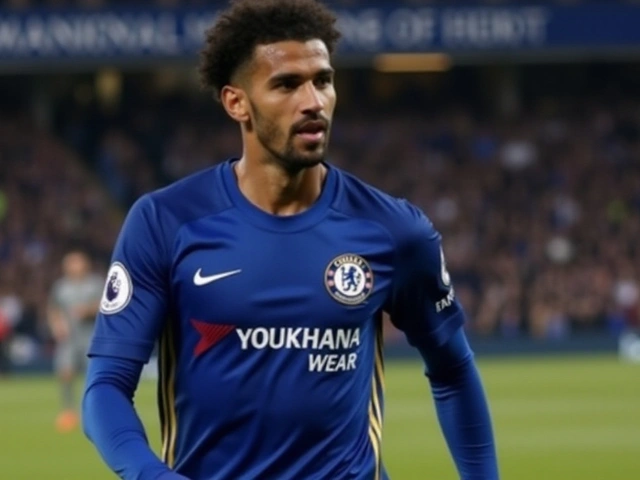In a decision that has sent ripples through the legal and entertainment world, the Jamaica Court of Appeal has overturned the previous convictions of dancehall sensation Vybz Kartel, born Adidja Palmer, and his co-accused in the 2011 murder case of Clive “Lizard” Williams. This landmark ruling erases a shadow that has lingered over the lives of these men for over a decade.
The decision stems from a previous ruling by the Privy Council in the United Kingdom, which had highlighted significant concerns over juror misconduct in the original trial. The acknowledgment of these flaws underscored the fragility of the judicial process and ultimately influenced the appeal court's ruling.
Vybz Kartel, along with his co-defendants Shawn 'Shawn Storm' Campbell, Kahira Jones, and Andre St John, were convicted in 2014 for the brutal murder of Williams in a case that had captivated the nation. These men had exhausted numerous appeal avenues within Jamaica before their legal team sought relief from the UK-based Privy Council, the highest point of appeal for the Jamaican justice system.
The Court of Appeal's decision to free Vybz Kartel and his co-accused was not taken lightly. The three-judge panel comprising Justices Marva McDonald-Bishop, Paulette Williams, and David Fraser delivered a unanimous ruling. They took into account several critical factors that cast serious doubts on the fairness of a retrial. Among these, the health of the defendants, witness availability, and the magnitude of previous juror misconduct were paramount.
The appeal ruling stressed the potential prejudice against the defendants if a retrial were pursued. The judicature underscored the constitutional rights of the accused and raised concerns regarding the long-term integrity of the justice system should such procedural flaws be overlooked. These considerations contributed to the court's decision not to order a retrial, emphasizing the considerable difficulty the prosecution would face in presenting a viable new case.
This resolution marks a potent reminder of the enduring impact of judicial integrity and underscores the necessity of scrupulous adherence to legal protocols. Following the ruling, Vybz Kartel's attorney, Isat Buchanan, voiced his contentment with the outcome and lauded the efforts of the legal team throughout the extensive appeal process. He anticipates Kartel's upcoming release soon after the court order is officially communicated to the superintendent of prisons.
For Vybz Kartel, a figure who has significantly influenced the dancehall music scene, the court's decision symbolizes not just a personal triumph but a broader message about the complexities of justice. Given his substantial fan base and his prolific contributions to music, his exoneration has profound implications for the entertainment industry. This moment also raises potent questions about the initial verdict's validity and the systemic issues that allowed for such severe juror misconduct to go unchecked in the first instance.
Furthermore, this case has highlighted the crucial role international judicial oversight can play. The intervention by the UK Privy Council illustrates the global dimension of legal appeals and the mechanisms available for ensuring fair trials beyond national borders. This intervention sets a precedent for future cases where local judicial proceedings might be called into question on grounds of fairness and due process.
The court's judgment will soon be accessible to the public on the official website of the Court of Appeal, offering transparency and insight into the legal reasoning that prompted this historic decision. For many, this development may also serve as a catalyst for broader discussions on judicial reform, particularly concerning the integrity of trial processes and juror conduct.
As Jamaica reflects on this milestone in its judicial history, one thing is sure: the echoes of this ruling will resonate far and wide. It underscores the importance of vigilance and accountability within the justice system while underscoring the profound impact such decisions can have on society's collective consciousness.
For Vybz Kartel, the future now holds the possibility of new beginnings. His release will undoubtedly catalyze further discussions around legal reforms and judicial transparency in Jamaica, potentially influencing broader societal changes. As a dancehall icon with global influence, his newfound freedom could also spark a renaissance in his music career, making his journey from incarceration to exoneration a compelling narrative that many will follow closely.






Gerald Hornsby
August 2, 2024 AT 00:06Justice finally found its way, and the system takes a deep breath. 😮
Hina Tiwari
August 2, 2024 AT 01:06It’s hard not to feel the weight of this decision on every Jamaican who cares about fairness.
The years of uncertainty must have been a relentless storm for the families involved.
Seeing the appeal court step in shows that even broken systems can find a chance to heal.
I hope the victims’ families get the closure they deserve, even if the path is complicated.
The role of the UK Privy Council reminds us that justice can cross borders, which is both reassuring and unsettling.
When juror misconduct is exposed, it shakes the foundation of any verdict.
People who were convicted for a crime they might not have committed finally get a sliver of hope.
But we must also remember that the truth is messy and rarely fits neatly into legal boxes.
The court’s concern about health and witness availability is a real human factor often ignored.
It feels like a bitter‑sweet moment, a mix of relief and lingering doubt.
A lot of us have been watching this saga unfold for over a decade, and the emotions are still raw.
Now that the legal doors have opened, the next chapter for Vybz Kartel will be watched by fans worldwide.
I truly hope this case sparks a broader conversation about reforming how juries are selected.
Everyone deserves a fair trial, no matter who they are; that’s the core of democracy.
May this be a step toward more transparency and less heartbreak in the future.
WILL WILLIAMS
August 2, 2024 AT 02:06What a roller‑coaster! The vibes are electric, and the future looks brighter than a sunrise over Kingston.
Barry Hall
August 2, 2024 AT 02:08Totally feel the hype, but let’s keep the convo respectful. 👍
abi rama
August 2, 2024 AT 02:53It’s amazing to see the system work, even if it took a decade. We can all take a breath and look ahead with optimism.
Megan Riley
August 2, 2024 AT 03:53Right on! This is a chance for everyone-especially the youth-to see that perseverance pays off!! Let’s keep supporting positive change!!!